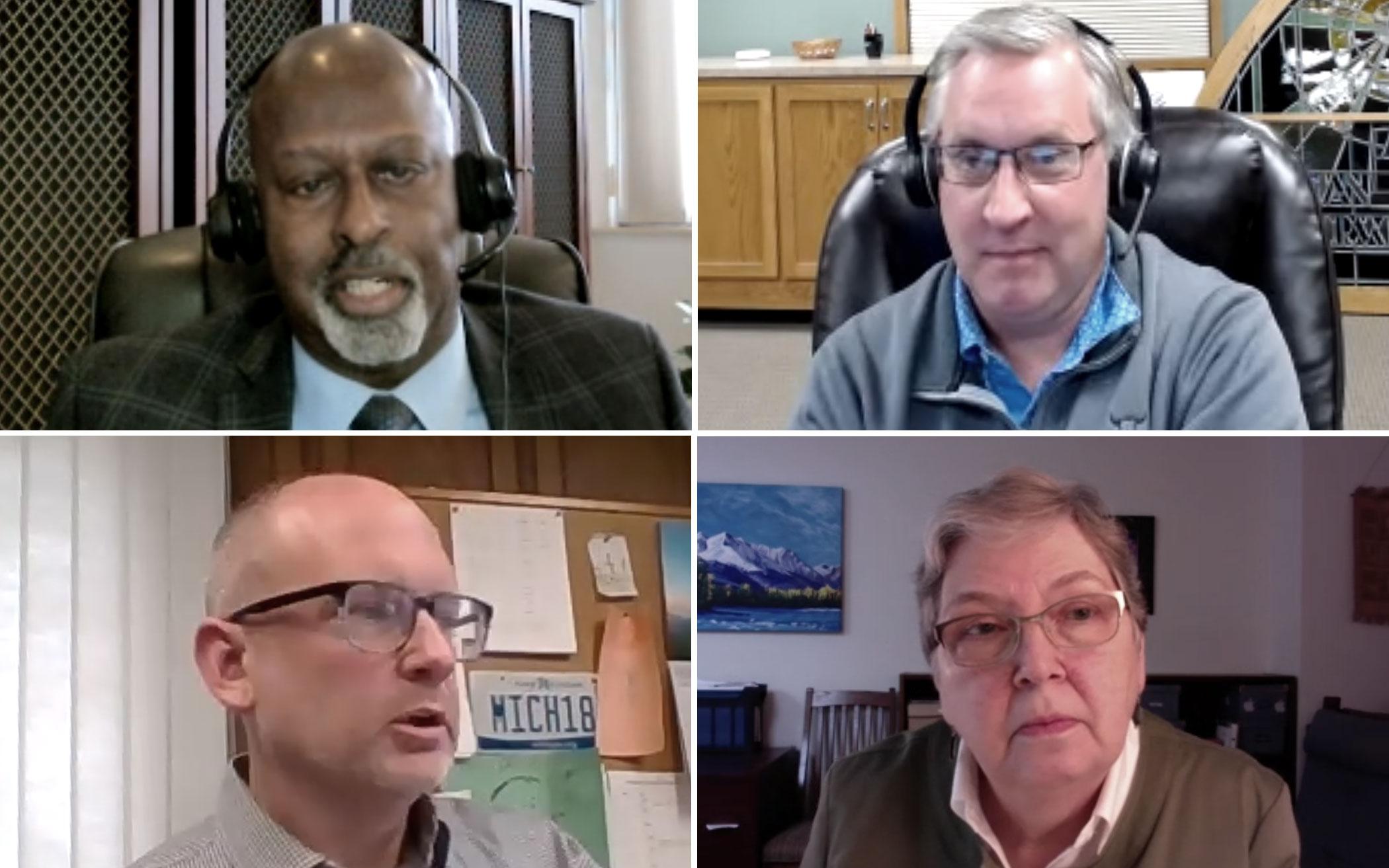When the Council of Delegates of the Christian Reformed Church met by video conference in February, it took another tentative turn in the journey toward administrative restructuring of the CRC in the U.S. and in Canada. (Synod is the broadest assembly of the CRC. The Council acts on behalf of synod in between its meetings.)
The latest proposed suggestion is moving the new office of the general secretary out of the CRC’s U.S. Corporation to a separate ecclesiastical corporation. Historically, the demonination’s executive director, or most senior leader, was located in the U.S. corporation.
Soon-to-retire executive director Colin P. Watson Sr. presented the proposal. He told delegates that every employee has to be located inside a legal corporation. “For the sake of having abundant clarity, it makes sense to move the office of the general secretary completely away from the U.S. corporation.” The office includes synodical administration, standing committees of synod, and the office of communications and marketing.
Watson noted that the U.S. Corporation involves just three organizations: Resonate Global Mission, Raise Up ministries, and the congregational ministries group. The Canada Corporation governs Resonate-Canada, congregational ministries, and specifically Canadian ministries such as the Indigenous Ministry Committee.
The denomination has many other corporations, including Calvin Theological Seminary, Calvin University, World Renew-U.S., World Renew-Canada, ReFrame Ministries, the Loan Fund and more. But how do all the corporations with their own boards link back to the denomination, synod, and the Council?
Watson said it happens in the office of the general secretary. Working on behalf of synod, he said, that office is where we say as a church, ‘these are the areas we want to focus on, our ministry plan.’ The office also includes the chief administrative officer, Watson said. “The CAO is convenor for all things, including financial. The CAO is not there to tell corporations how to do things, but try to make sure what they are doing is consistent with what synod has asked for.”
Watson’s proposal calls for the ministry leadership council, composed of the senior leaders from all the ministries, to transition from being a decision-making body to one of being a roundtable for discernment and strategic conversation.
Additionally, Watson recommended that the U.S. Corporation name a senior executive who is the point-person responsible to the U.S. board. It would not be an executive director position but rather a person who would assume the reporting role in addition to his or her senior ministry director position. The Canada Corporation has an executive director.
Tyler Wagenmaker (Classis Zeeland) said he understood that the chief administrative officer would function on the U.S. side. “If it is in the office of the general secretary, it seems more and more we are essentially two denominations with joint ministry agreements.”
Michael Ten Haken (Classis Lake Superior) said the office of the general secretary, including the CAO, is there to maintain that denominational bond between the two structures. “We need to gain clarity between governance and management,” he said.
The fraught journey toward a new governance structure started more than two years ago. It has seen the resignation of an executive director and the dismissal of a Canadian ministries director, and conflict between Council members. (See, most recently, Canadians Meet to Discuss Leadership Structure, Feb. 1, 2022.) It has been complicated by the fact that the denomination’s synod, which would ordinarily review governance decisions, has not met since 2019.
A point of contention has been the lack of a parallel structure between the U.S. and Canada, something that had been agreed to in principle in 2020. (See also “New Leadership Structure Recommended Amid Much Disagreement,” May 14, 2022.)
Bev Bandstra (Classis B.C. South-East) was happy to see the new direction. “Thank you so much,” she said. “This goes a long, long way in improving relations between the U.S. and Canada within the denomination.”
The Council did not act on Watson’s proposal, but the executive committee asked the executive director to bring a comprehensive report and proposed bylaws back to the Council’s next meeting in May.
About the Author
Gayla Postma retired as news editor for The Banner in 2020.

